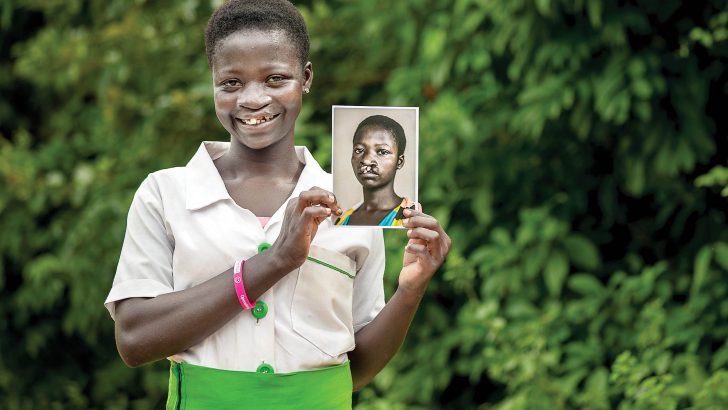Operation Smile was founded by husband and wife, Bill and Kathy Magee, in 1982, and has increased the number of smiles to be found in the world steadily since then, writes Jason Osborne
Following a trip to the Philippines to provide surgery for children born with a cleft lip, a distinct need was seen and so Operation Smile was born. Since then, the organisation has provided hundreds of thousands of surgeries for those born with cleft lip and cleft palate. They don’t limit themselves to transformative surgeries, however.
Speaking to The Irish Catholic, Jessica Nazzari of Operation Smile explained the nature of the work that the organisation carries out today.
“Around the world, there are millions of people living with this condition, which is not just aesthetic, which is probably the main thing that people don’t realise. That people living with cleft can have trouble eating, breathing, and they can even die because they can’t be fed properly. We also provide a lot of malnutrition support. In a lot of countries, like in Ghana or in Madagascar, just make sure the children are fit for surgery, but also that we support parents. Because as you can imagine, in countries like Ireland or the U.K., the national health system can provide surgery and we don’t realise that cleft is a problem.”
Stigma
However, the material and logistical needs are just one side of the problems that people with a cleft lip or palate suffer from – social stigma remains a major issue in many places.
“There is a huge stigma – people even think that they are not human, just because they are born with a cleft, so they are often bullied and they live lives very marginalised. They can’t be in the community,” Ms Nazzari told.
“Basically, what we do is we provide comprehensive care, which also includes fighting the social stigma, for example. But also providing psychological support. In some of the countries we work in, like, for example, in Columbia, we also have some local cleft centres so as soon as a mother gets the diagnosis that she’ll have a baby with a cleft, they will be put in touch with our centres and we will have psychologists who will explain what it is like, what’s going to happen to them and their children, and they will prepare them for all the different surgeries that maybe their children will have to do.”
One such example of a life changed by Operation Smile’s work is Faustina Tsifokor. For 17 years, she lived with the burden of a cleft lip in Ghana; a condition which resulted in extreme social isolation.
“I can’t go anywhere because of my cleft,” she said. “I can’t attend school. I just spend my days helping my mother at home. I have my family, my siblings and parents, but I have no friends and I feel sad.”
Measure
Her parents understood the nature of the society they lived in and took the protective measure of separating their daughter from the public, for fear of the emotional and physical abuse she’d likely face.
Unable to avail of surgery because of the cost and a lack of opportunity, Faustina resigned herself to the cold existence that people born with cleft lip and palate are subjected to in many parts of the world – until a neighbour passed along Operation Smile Ghana’s number.
The surgery was performed by Operation Smile medical volunteers, who give their time for free to run medical missions to more than 32 countries, including Ghana.
Faustina now finds herself at the centre of a group of friends, a sewing apprentice with plans for her life like the other young women around her.
Ms Nazzari explained that the surgery is merely one part of the work to be done, with Operation Smile providing many of the structures and services needed post-surgery.
“We try to assess what the need is and then we can help. We also work with local people because we want to empower them and we want to make sure they will be able to provide all the surgeries they will need and also all the different services like speech therapy. Because often children with cleft palette…it can have a huge impact on how children speak. That’s why they need a lot of speech therapy, to improve how they speak.”
Cora O’Leary is a nurse and she’s been involved with Operation Smile since 2010. She has travelled to 12 medical missions, in countries like Ghana and Malawi, and has seen first-hand the difference a cleft surgery can make for children and young adults like Faustina.
“When I started volunteering with Operation Smile in 2010, it was because I wanted to make a difference. It takes as little as 45 minutes to transform a life and the impact goes far beyond the child…Their parents, their family and even their community will benefit from it.”


 Faustina Tsifokor
smiles following
surgery on her cleft
lip, holding a picture
for comparison.
Faustina Tsifokor
smiles following
surgery on her cleft
lip, holding a picture
for comparison. 